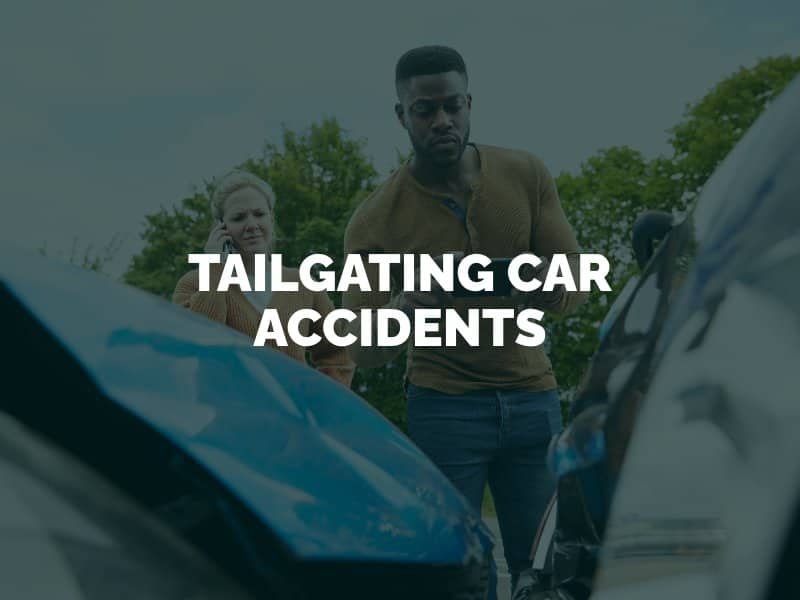Tailgating is the dangerous practice of driving too close to the back of another driver’s vehicle. Tailgating is responsible for dozens of car accidents in Colorado every year. These accidents can take the form of minor rear-end collisions to catastrophic high-speed crashes. If you get hurt in a tailgating accident in Denver, you may be eligible for financial compensation.

“Tailgating” is the colloquial term used for following too closely. It is when a driver does not leave an appropriate or safe amount of distance between the front of his or her vehicle and the back of the car in front of the driver. Tailgating may be done intentionally, such as by a driver who is frustrated and wants the lead driver to know. It could also be done unintentionally due to driver distraction or drowsiness.
There are state and municipal laws against tailgating in Colorado. Colorado Revised Statute Section 42-4-1008 states that the driver of a motor vehicle shall not follow another vehicle more closely than is “reasonable and prudent.” What is reasonable depends on the traffic conditions, road and highway conditions, and the speeds of the vehicles involved. It is decided on a case-by-case basis, often after a thorough investigation of a related car accident.
The average amount of following distance that a driver should use is at least one car length for every 10 miles per hour of the vehicle’s speed. Another way to measure safe following distance is by leaving at least a two-second interval between the vehicles. This means at least two seconds should elapse between the moment when the rear of one vehicle passes an object and the front of the following vehicle passes the same object. These are the measurements used in the Colorado Springs Municipal Code against following too closely.
Laws against following too closely are in place to help prevent rear-end collisions. With an adequate following distance between two vehicles, the rear driver will have enough time and space to hit the brakes and avoid colliding with the lead driver. If you take away this space, the rear driver may not have enough reaction time to avoid a crash.
In addition to the dangers of not leaving enough space between two motor vehicles, tailgating is often associated with other dangerous or reckless driver behaviors. Examples include aggressive driving, road rage, excessive speeding, weaving in and out of traffic, and unsafe lane changes. These behaviors can increase the risk of a car accident.
If tailgating results in a rear-end collision, the driver that was rear-ended could suffer serious injuries. Even a low speed rear-end collision could whip a driver’s head and neck back and forth with enough force to cause whiplash. Rear-end collisions also frequently cause back injuries, knee injuries, muscle strains and sprains, and broken bones. At higher speeds, the injuries caused by tailgating become more severe.
Most rear-end collision claims result in the rear driver being found liable or at fault for the accident. This is because it is the rear driver’s responsibility to maintain a safe following distance and pay attention to the road. In rare cases, however, the lead driver could be found at fault for actions such as brake-checking (suddenly hitting the brakes to scare a tailgating driver) or making an unsafe lane change.
If you need to file a claim for a tailgating accident in Denver, contact an experienced Denver car accident attorney for help. You may need an attorney’s assistance to prove that the driver behind you was tailgating or following too closely. This is especially true if the other driver’s car insurance company attempts to blame you for the accident or has rejected your claim. For more information about tailgating car accidents, contact Fang Law Firm for a free case consultation.